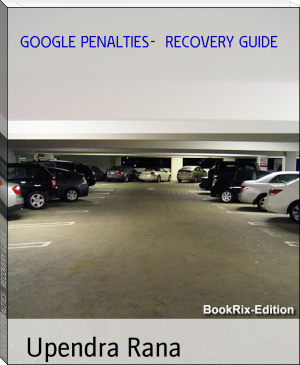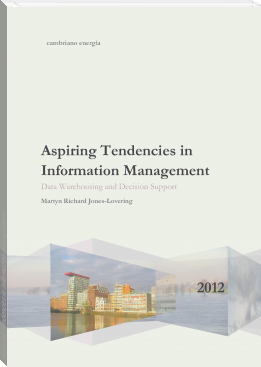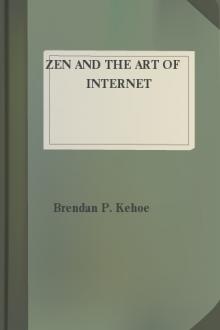GOOGLE PENALTIES- RECOVERY GUIDE - Upendra Rana (best books to read for beginners .TXT) 📗

- Author: Upendra Rana
Book online «GOOGLE PENALTIES- RECOVERY GUIDE - Upendra Rana (best books to read for beginners .TXT) 📗». Author Upendra Rana
Uploading the disavow tool (meaning taking care of every aspect, avoiding mistakes, completely fulfilling the requirements) could take up to a few hours.
4.4. Critical Myths That You Need to Know Before Doing a Google Disavow
Like any other list of this kind, we cannot say that this is exhaustive.
It’s true that it’s difficult to separate, at times, the myth from the truth, especially when you have knowledge of some cases when the situation might strengthen the myth rather than busting it. Yet, what is important is to analyze each situation in particular and react according to each.
A lot of things can be learned and applied from all the myths listed above. We recommend you to read them carefully, to come back to them any time when in doubt and dig deeper into each situation that occurs and not just take things as they are “urbanely” spread.
We did a lot of research in order to be sure that the information that we deliver is highly accurate and strongly backed up but we also asked some experts’ opinion on this matter. There were more than happy to share their knowledge with us: Mark Porter, Krystian Szastok, Marie
Haynes, Chuck Price, Gabriella Sannino, Rusell Jarvis, Emory Rowland, Davin, Cohen.
Without any other introduction, let’s meet the biggest myths of all:
The Disavow Process is Not Automatic. A Manual Inspection Is Done.
There has been some speculation that the disavow tool is not really the result of automated processes, but rather that every time it is used, a manual inspection is performed. Aside from the fact that this would actually mean a lot more work for Google, it has actually been confirmed that the disavow process is fully automatic and there is no need to follow-up with a reconsideration request. The disavow tool is
“automatic for any
algorithmic rankings (such as Penguin and Panda)”, supposedly said Matt Cutts himself on a thread from more than a year and a half ago. Of course, reconsideration requests remain an option for manual webspam action, but only after you’ve first tried to take it down yourself. The disavow tool, however, leaves nothing for manual processing, which is probably why it’s always subject to extreme caution.
Someone Could Use the Disavow Tool to Harm Your Site.
The answer to the question of whether somebody could use the disavow tool to harm your site is as short and straightforward as it can be: NO.
Why? Because one would need access to your Google Webmaster Tool account in order to submit a disavow on your behalf.
Google Disavow Does Not Work on Penguin Penalties
The Disavow Tool is not a link cure-all that will propel your site into new heights of ranking and traffic. Yet, its purpose is pretty clear: to help you solve unnatural links issues by asking Google not to take certain links into account when assessing your site. As Google itself states, if you believe your site’s ranking is being harmed by low-quality links you do not control, you can ask Google not to take them into account when assessing your site. This fact is confirmed by expert Chuck Price which mentions that the disavow file, combined with a
detailed reconsideration request, is a core component in successfully getting a manual penalty revoked.
Furthermore, the Google Disavow tool became such a popular topic in the aftermath of the Penguin 2.0 update. It became clear that this tool was developed in order to help webmasters solve their issues regarding penalties.
Disavowed Links Disappear from GWT
Just like when you unsubscribe from unsolicited mail, once you disavow a link you should stop seeing or hearing about it altogether, right? Sort of. At any rate, Google will pretend not to see it from that moment on (by basically sticking an invisible nofollow tag to the link). The link, however, will not just disappear into thin air and you will still be able to see it in the Google Web Toolkit (remember that it’s the Disavow, not the Delete tool). So at a very basic level, there might not be any discernable difference, but that is no reason to panic. Just because you’re not seeing any visible change, it doesn’t mean there hasn’t been any.
You Can Disavow an Unlimited Number of Links
Of course, not all myths doubt the power of the Disavow tool. A few are somewhat exaggerating it. Like the myth about being able to disavow an unlimited number of links. Admittedly, this is a more subtle point. While there is no specific limit to the number of links you can disavow, there is a 2 megabyte size limit on the disavow file. Which, in fairness, is pretty much all you should need given that the tool should be used sparingly and only as a last resort. After all, a 2 megabyte limit is still the equivalent of about 1000 full pages of text. If you need to disavow that many links, maybe your problems are more serious than can be tackled by this tool.
The Webspam Team Reads All the Comments in Your Disavow File
This would sort of make sense. If there was a team who read the comments. Meaning there would be some manual part of the process. But this, as we saw earlier, is not what happens. The process is fully
automatic, so even if you might see examples of disavow files containing comments, be aware that those comments are not meant for Google to read and act upon. Rather, they are useful for yourself, should you want to make sense of the file later on, or even edit the file. Why edit? Well, basically because our next myth is false as well.
Disavowed Links Cannot be Reavowed
There are a number of reasons why you might want to “re-avow” a link: maybe you disavowed it by mistake in the first place, maybe you changed your mind about a particular link, or maybe you simply have something else in mind and need the link to be crawled again. Regardless of reasons, re-avowing is fairly easy to do: simply remove the link from the file and re-upload the file. Next time Google visits the link, it will count towards your PageRank again. But before you remove a link from the disavow list, you might want to make sure that you really mean it. Because if the link still looks unnatural to Google, you might just get penalized again. And a second penalty round from Google is much like a second penalty round by the criminal system in real life: it usually takes longer to reclaim the lost trust. The best example of a scenario in which it would be advisable to take advantage of this feat would be if you had disavowed an entire domain but not all of it was bad. Your best course of action would be, if you know exactly which links are bad, to remove the domain name from the disavow list and only add back in the specific links you know are harming your site. Why throw away the whole crop just because of a few bad apples?
You Can’t Recover from a Penalty and then Delete Your Disavow
File
If you are sure that your site has been hit with a manual penalty and you’re sure that penalty is link-based and you haven’t been able to get those links removed, you can certainly use the Disavow tool to recover.
It may take up to a few months for Google to process your request of no follow, but if you prove Google that you have taken unsuccessful action in order to remove the bad links, recovery is on the horizon. One thing you may be tempted to do is to erase the disavow file once you recovered from a penalty. Bear in mind that as long as the links in the disavow still exist online, the removal of the disavow file makes you liable for a new penalty, once Google re-crawls the web and finds the same old links.
Basically, you can’t recover from a penalty and then delete your disavow file as Google keeps track of everything and will find out.
Google Disavow is Not Using the Uploads to Train the Algorithms
Frequently, our efforts are directed towards understanding algorithms. Yet, isn’t it possible that Google might do just the same? Meaning that it could “learn” from all the disavow lists and keep itself up to date with the newest “types” of unnatural links and link building schemes.
Google Disavow Tool Will Not Hurt Your Rankings
The jury is still out on this one. There is not a lot of evidence, but what exists is an interesting experiment. Cyrus Shepard at Moz disavowed all links to his personal website in the beginning of April 2013. Nothing happened in the following 2 months, but then in late May the rankings started to drop. Was this the effect of the Disavow tool? Hard to tell, since in the case of this particular experiment, late May of 2013 was also the time Google released Penguin 2.0, one of a handful of major updates made by Google for its ranking algorithms.
Shepard’s intuitive conclusion is that unless you file a reconsideration request right after using the disavow tool, you will not see any effects up until the first major algorithm update. Based strictly on his example, it might very well be true. It’s also true that he disavowed all the links to his website. What if he had disavowed only a few? Chances are that, taking all things into consideration, his rankings would not have dropped significantly. Shepard’s blog only dropped 8 positions for “seo blog” (not exactly an obscure phrase) after the disavow list entered into effect for all the links (assuming he was not liable for any Penguin 2.0 penalties). So if disavow really worked after Penguin 2.0, shouldn’t the drop have been a lot bigger? One theory that might still support this myth is that Google, in its own words, regards the disavow
file as a “strong suggestion rather than a directive—Google reserves the right to trust our own judgment”.
Disavow expert Marie Haynes takes this to potentially mean that if Google can actually distinguish between natural and unnatural links, then maybe it treats disavow files with caution and doesn’t disavow natural links. That would be a pretty big responsibility though, and not one that they might necessarily want to take upon themselves. Bottom line? Unless you’re disavowing all the links to your website, it is difficult to know what might happen (in the absence of Penguin or Panda update).
A Google Disavow Will Always Recover Your Rankings
If you have been hit by a manual action from Google, you are not necessarily going to return to were you were after the links are disavowed. If your site had an unnatural boost from those links, you are going to work a little bit harder to get natural links to recover. While Page Rank might not be the sole indicator of relevancy for Google, it is still a very important one. And you need to bear in mind that Page Rank is basically about the number and importance of links pointing to your site. Hey, they may not be links from The New York Times or
Financial Times, but they still count, don’t they? Not if you disavow them. So, your rankings will be hurt, sure, but some traffic is better than no traffic at all.
Yet, it is actually very difficult to verify whether a Google Disavow will recover your rankings or not because there is so much more at play than just the links. Cyrus’ case , for instance, is difficult to assess because the disavow timeline is intertwined with that of the Penguin releases. Would the results have been different, had the disavow file been submitted after the Penguin release





Comments (0)